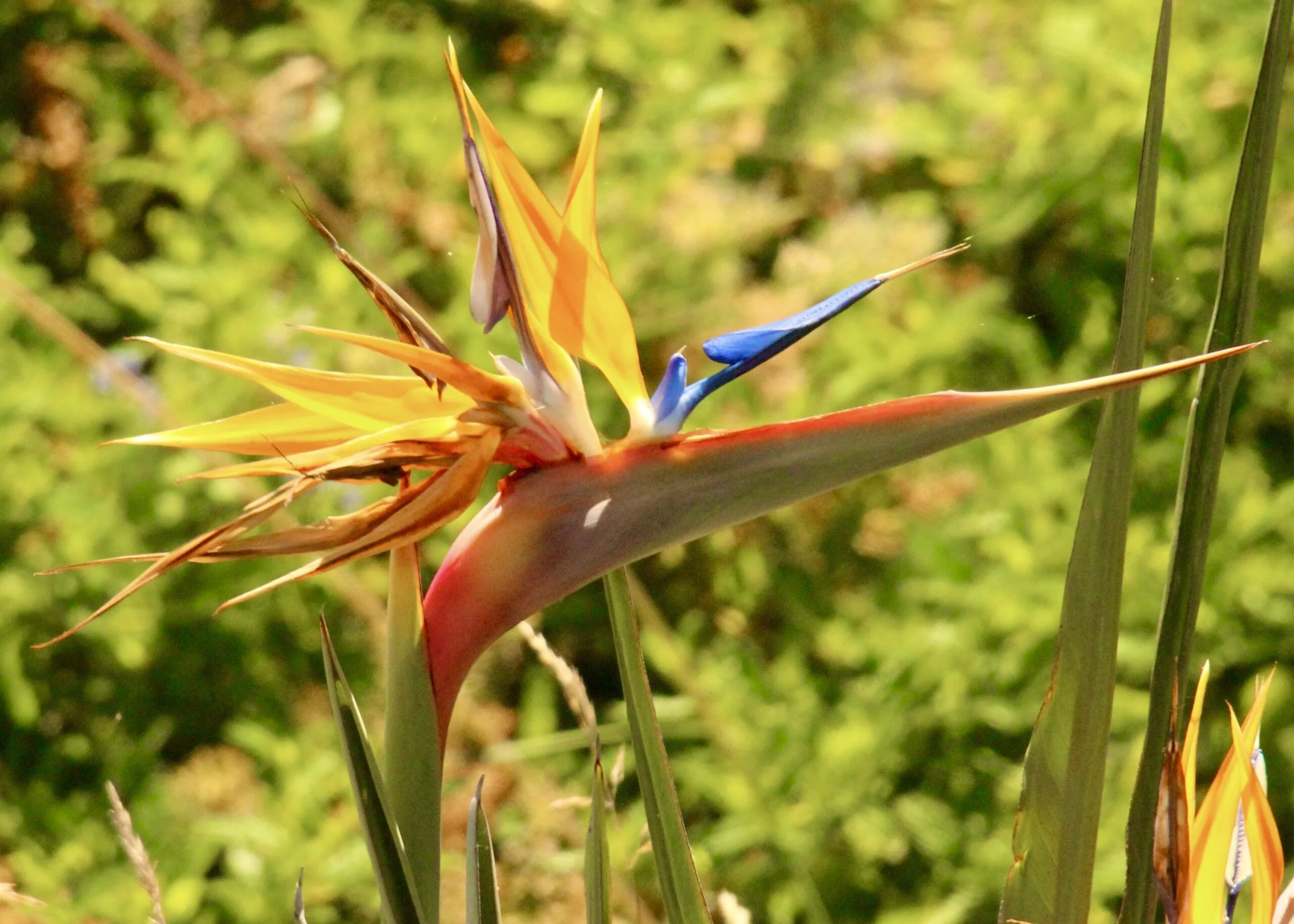The Fear of Rejection: You're Lovely
The topic of rejection and its attendant anxiety has come up with alarming frequency in the past few months, both with my clients as well as generally in various conversations I've had with various others (which, now that I say that out loud, is making me wonder if it's something I said...).
Rejection (from a potential life or project partner, from a job, a consulting gig, an article submission, whatever) sucks. And fear of rejection is therefore fully sensible.
Mala and I just returned from a vacation, and I had my predictable "fear of rejection" moment. And in case you're wondering, that predictable moment was: concern over what kind of review our AirBnB host would give us. Yes. I know. I can't help it, it happens every time. And we're the guests! Pathetic, I know. And yet, here we are. Funny how even the smallest of potential rejection has the ability to provoke (admittedly disproportionate) anxiety.
As another example, Mala and I, we have lots of collaborators. We love working with them one and all. However, we're in a constant state of fear that they will eventually realize how lousy our work is and what imposters we are, and they will never want to work with us again. For sure, this provokes a more heightened sense of anxiety than the damn AirBnB hosts do.
And so it is also fully sensible that we develop protective responses to that fear of rejection. Maybe bravado, or avoidance, under-preparation, over-preparation, sleepless nights, oh, so, so many responses.
In my AirBnB case, I swung toward over-preparation. I pored over the check-out instructions, made sure to scrupulously follow them all, went above and beyond (for example, stripped the bed even though we weren't asked to, and then agonized over whether maybe they specifically did not want us to do so because their cleaning service has their own process, oh man, should I re-make the bed?), checked and double-checked that all the dishes were in the dishwasher, and so on and so forth.
And that was it. All we could do was review the check-out instructions and do our best to be respectful guests. And then it was out of our hands.*
Despite how low-stakes that example is, and how high-stakes, for example, being rejected after a job interview is, and despite the reality that the power dynamics are reversed in those two examples (as the guest, I have more power than the host; as a job applicant, I'd have less power than the employer), I do believe the underlying principles still apply. Which is to say, all I can do is my share of the work, along with demonstrating my commitment and respect, and then it's out of my hands what you do.
When you think of it that way, it seems pretty obvious, right? If we followed the check-out requests and left the place more or less tidy, then any negative review, well, that's really out of our hands.
Sure. And yet. There's still the moment of rejection.
Research has found that the pain of rejection is similar to the pain of physical injury. Quite literally. Brain scans find that the same areas light up for both. Also, painkillers work for both. In one study, people who took a Tylenol every day reported fewer hurt feelings than people who took a placebo. And fMRI tests bore those self-reports out. So it's not an exaggeration to say that getting a bad AirBnB review (let alone being rejected by beloved collaborators or not getting a job offer after an interview) causes physical pain. Ouch.
And that means all the "just prepare!" exhortations don't address the actual pain of rejection.
So what does? According to psychologists, a few things have been shown to be helpful: to be in the moment and grieve; to put things in context and not obsess on blaming ourselves; to strengthen our resiliency; and to remember that rejection is an intrinsic part of any human endeavor and hence to keep putting ourselves out there.
To that list I would add: reminding ourselves of our own innate value. Reminding ourselves that we are exactly enough as we are. That our voice is perfect.
And finally: re-establishing a beloved relationship with our own bodies and selves. To remember our loveliness.
As the poet Galway Kinnell writes,
The bud
stands for all things,
even for those things that don’t flower,
for everything flowers, from within, of self-blessing;
though sometimes it is necessary
to reteach a thing its loveliness,
to put a hand on its brow
of the flower
and retell it in words and in touch
it is lovelyuntil it flowers again from within, of self-blessing;
as Saint Francis
put his hand on the creased forehead
of the sow, and told her in words and in touch
blessings of earth on the sow, and the sow
began remembering all down her thick length,
from the earthen snout all the way
through the fodder and slops to the spiritual curl of the tail,
from the hard spininess spiked out from the spine
down through the great broken heart
to the sheer blue milken dreaminess spurting and shuddering
from the fourteen teats into the fourteen mouths sucking and blowing
beneath them:
the long, perfect loveliness of sow.
So here's to each of us remembering our loveliness, feeling our own hand tracing a warm path from our forehead all down our thick length to the curl of our tail, the long, perfect loveliness of our being.
*Yes! We got a five-star review. Did I mention we stripped the beds?




